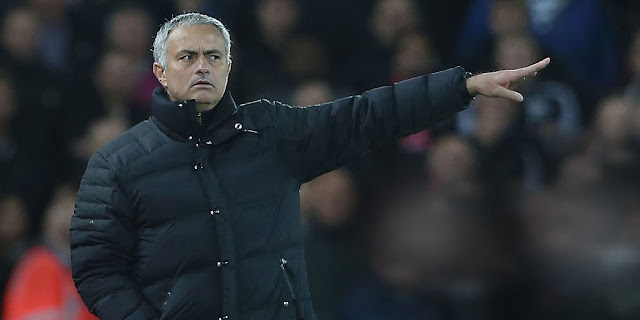José Mourinho
From Wikipedia, the free encyclopedia
"Mourinho" redirects here. For other people named Mourinho, see
Mourinho (name).
,
GOIH (born 26 January 1963), known as
José Mourinho (
Portuguese pronunciation: [ʒuˈzɛ moˈɾiɲu]), is a Portuguese professional
football manager and former football player. He is the manager of
Premier League club
Manchester United.
He is regarded by a number of players, coaches, and commentators as
one of the greatest and most successful managers in the world.
[2][3][4] In 2015 Mourinho was named the best Portuguese coach of the century by the
Portuguese Football Federation (FPF).
[5] Mourinho began his involvement in professional football as a player in the
Portuguese Second Division. He studied
sports science in
Technical University of Lisbon and attended coaching courses in Britain. In Lisbon, he worked as a
physical education
teacher and had spells working as a youth team coach, a scout, and an
assistant manager. In the early 1990s, he became an interpreter for Sir
Bobby Robson at
Sporting CP and
Porto in Portugal, and
Barcelona in Spain. He remained at the
Catalonian club working with Robson's successor
Louis van Gaal.
Mourinho impressed with brief but successful managerial periods at
Benfica and
União de Leiria, taking the latter to their highest ever league finish. He returned to Porto in early 2002 as head coach, winning the
Primeira Liga,
Taça de Portugal, and
UEFA Cup in 2003. In the next season, Mourinho guided the team to victory in the
Supertaça Cândido de Oliveira, to the top of the league for a second time, and won the highest honour in European club football, the
UEFA Champions League.
Mourinho moved to Chelsea the following year and won the Premier League
title with a record 95 points, the club's first league title in 50
years, and the
League Cup in his first season. In his second year, Chelsea retained the Premier League and in 2006–07 he took the club to an
FA Cup and League Cup
double. Mourinho left Chelsea in September 2007, amidst reports of a rift with club owner
Roman Abramovich.
[6]
In 2008, Mourinho moved to
Serie A club
Inter Milan. Within three months he had won his first Italian honour, the
Supercoppa Italiana, and completed the season by winning the
Serie A title. In 2009–10, Inter became the first Italian club to win the
treble of Serie A,
Coppa Italia
and the UEFA Champions League, also the first time Inter had won the
latter competition since 1965. He is one of only five coaches to have
won the
European Cup with two different teams,
[7] along with
Ernst Happel,
Ottmar Hitzfeld,
Jupp Heynckes and
Carlo Ancelotti. He won the first ever
FIFA World Coach of the Year Award in 2010.
[8] He then signed with
Real Madrid in 2010, winning the
Copa del Rey in his first season. The following year, he won the
La Liga and became the fifth coach, after
Tomislav Ivić, Ernst Happel,
Giovanni Trapattoni and
Eric Gerets, to have won league titles in at least four different countries: Portugal, England, Italy and Spain.
[9][10]
After leaving Madrid in June 2013, Mourinho returned to England to
manage Chelsea for a second spell, during which they won another league
championship, but was sacked on 17 December 2015, after a poor run of
results left Chelsea just outside the relegation zone.
[11]
Following several months out of the game after losing his job at
Chelsea for the second time, Mourinho was confirmed as the new manager
of Manchester United on 27 May 2016.
[12]
Because of his tactical knowledge, charismatic (but also very
controversial) personality and what his opponents regard as emphasis on
getting results over playing beautiful football, he is often seen, by
both admirers and critics, as the successor of Argentine manager
Helenio Herrera.
[13][14]





